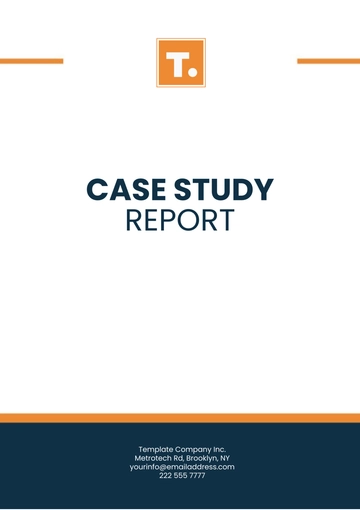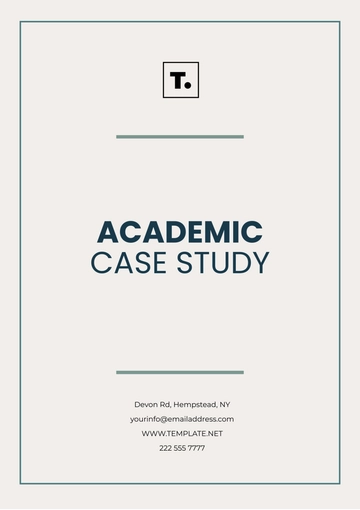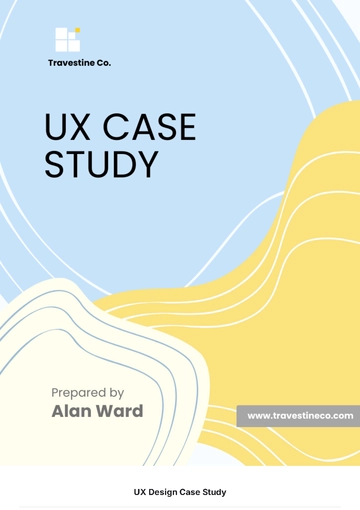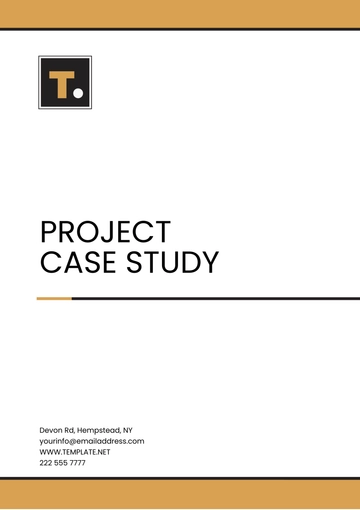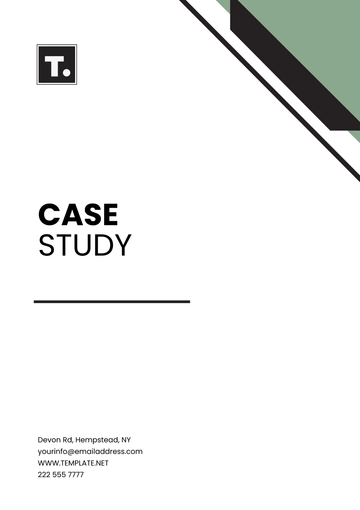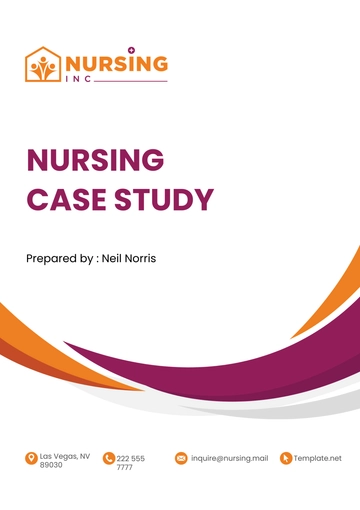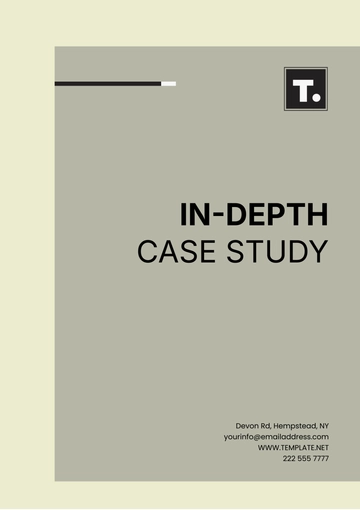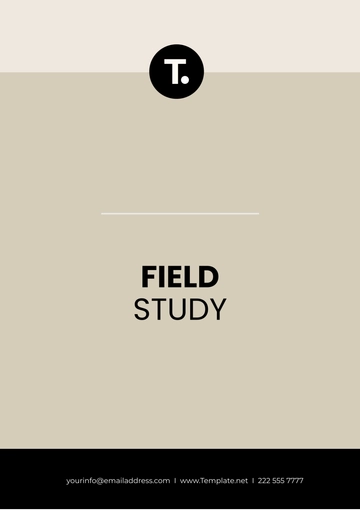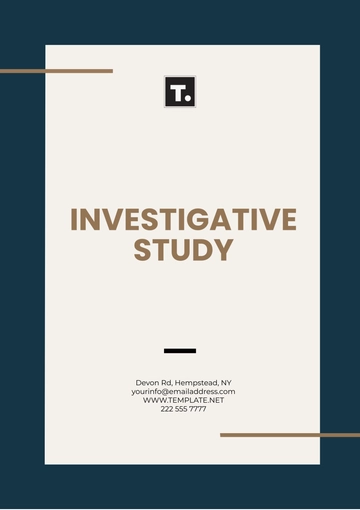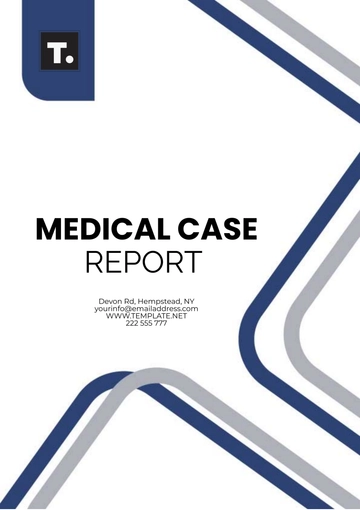Free Case Study Outline
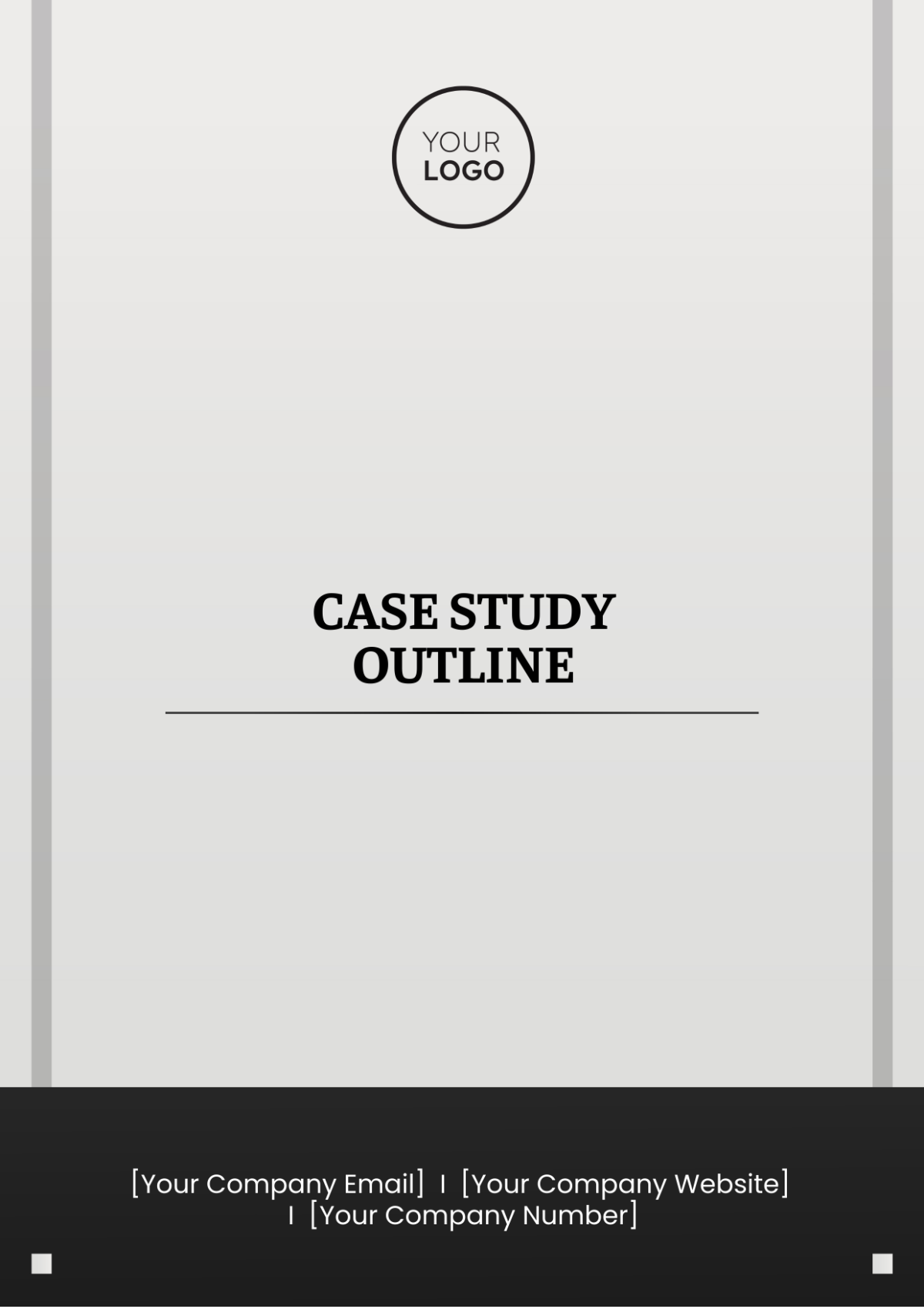
1. Abstract:
This case study examines the growth and development of students in the scientific field, focusing on the influence of mentorship, research opportunities, and academic support.
2. Introduction:
Context: Provide an overview of the scientific field and the significance of student growth in fostering innovation and progress.
Objective: Outline the aim of the case study, which is to explore the multifaceted nature of student growth and its implications for academic and professional success.
Scope and Limitations: Define the boundaries of the study, highlighting its focus on specific aspects of student growth while acknowledging potential constraints.
3. Methodology:
Research Design: Employ a qualitative approach, utilizing in-depth interviews and document analysis to capture nuanced insights into student experiences.
Participant Selection: Employ purposive sampling to select students with diverse backgrounds and research interests, ensuring a rich and varied dataset.
Data Collection: Utilize semi-structured interviews, supplemented by document analysis of academic records and research publications.
Data Analysis: Employ thematic analysis to identify patterns and themes related to mentorship, research experiences, and academic support.
4. Analysis:
Key Findings: Present the findings related to student growth, highlighting the role of mentorship in shaping career aspirations, the impact of research experiences on skill development, and the importance of academic support in fostering resilience.
Data Interpretation: Interpret the findings in the context of existing literature, highlighting the unique contributions of the study to the field of science education.
5. Discussion:
Implications for Practice: Discuss how the findings can inform educational practices, such as the design of mentoring programs and curriculum development.
Implications for Policy: Explore the policy implications of the findings, emphasizing the need for institutional support for student development initiatives.
6. Conclusion:
Summary of Findings: Summarize the key findings of the study, emphasizing their significance in advancing our understanding of student growth in the scientific field.
Future Research Directions: Suggest areas for future research, such as longitudinal studies to track the long-term impact of mentorship and research experiences on student outcomes.
7. References:
List of all sources cited in the case study, following APA citation style.
Prepared by:
Professor [Your Name]
Contact Details:
[Your Company Name]
[Your Company Email]
[Your Company Number]
- 100% Customizable, free editor
- Access 1 Million+ Templates, photo’s & graphics
- Download or share as a template
- Click and replace photos, graphics, text, backgrounds
- Resize, crop, AI write & more
- Access advanced editor
Our Case Study Outline Template is crucial for structuring case studies effectively. This customizable document covers sections such as introduction, background, methodology, findings, discussion, and conclusion. Downloadable and printable, it guides the creation of comprehensive case studies. Edit it in our AI Editor Tool to fit your needs and enhance your case study efforts.



